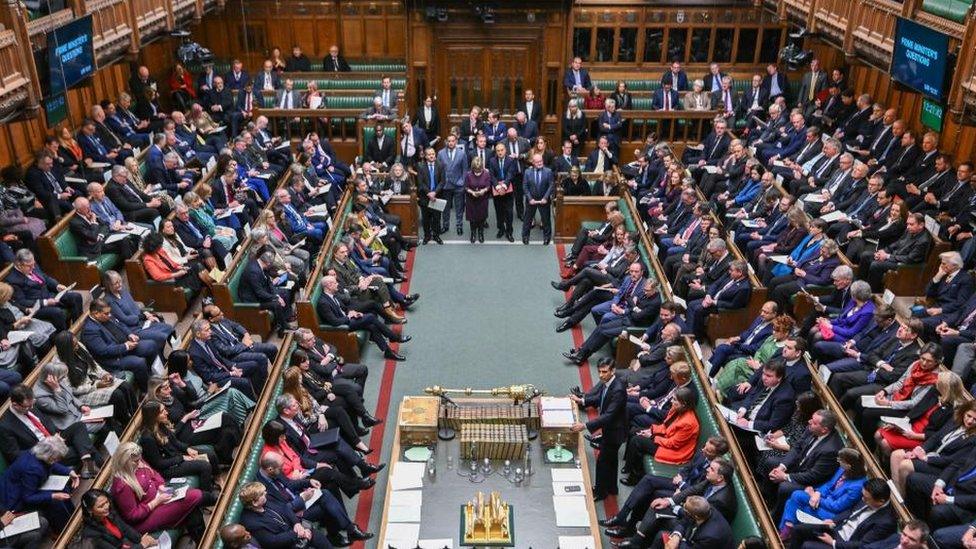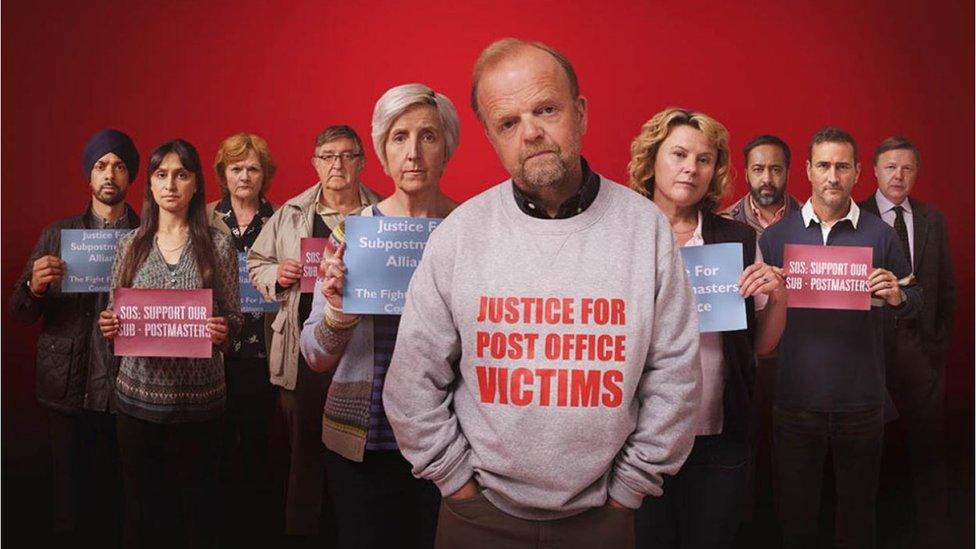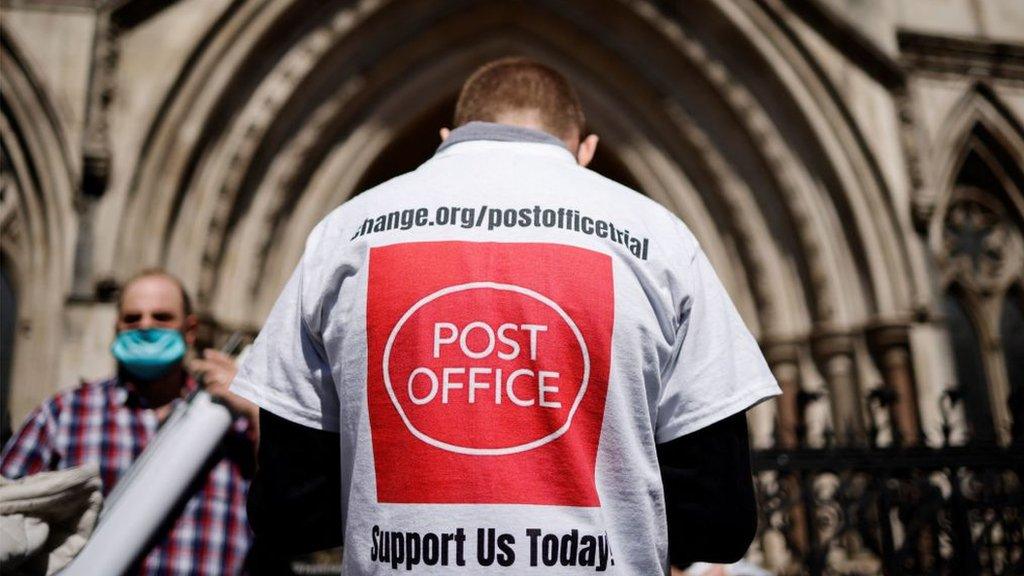Chris Mason: Justice at last, but plenty more questions remain
- Published

This time last week the ITV drama on the Post Office scandal hadn't even finished.
And now the government has announced a change in the law with massive constitutional, political, practical and financial implications.
The wheels of politics suddenly whizzing around, after the wheels of justice creaked at a glacial rate for ages.
What we are seeing is near unprecedented.
Westminster interfering in the independent decisions of the courts.
And all this after a generational failure taking in a national institution, the Post Office, three political parties and the Japanese technology company Fujitsu, just for starters.
Why? Because the TV drama managed to capture something, in its execution, its casting, its timing, which captured the public mood and, finally, argue campaigners, seized the attention of the government.
One cabinet minister told me that watching the series with family over the holidays had prompted sharp questions for them: a demand to know what they were going to do about it.
It is that, multiplied many million times over, that helps explain this seemingly transformational moment for those who have spent years and years demanding justice.
A lot of people were let down for a long time.
So the breadth of questions and the breadth of people facing questions is quite something.
There are Labour folk who were ministers way back when in the noughties, now trawling their records and government records to remind themselves how they acted, what they did, what they were told, who they met.
There are former Liberal Democrat ministers from the coalition years too, and Conservative ministers as well.
But, this being an election year, those facing the loudest questions are those in the most prominent political positions, who occupied other prominent positions during this scandal.
Questions for party leaders
So, the Liberal Democrat leader Sir Ed Davey has faced questions over his spell as Post Office Minister, one of over a dozen occupiers of that role during the scandal.
And there have been questions too for Sir Keir Starmer, the Labour leader.
Sir Keir, as he frequently reminds people, was the Director of Public Prosecutions for England and Wales from 2008 to 2013, and so led the Crown Prosecution Service (CPS).
The CPS's role in the prosecution of sub-postmasters was minimal as the vast majority were private prosecutions brought by the Post Office.
It brought three cases against those who ran post offices during Sir Keir's time running the organisation.
Labour say the cases were never brought to his attention and during his five years in charge the CPS oversaw four million cases in total.
Others pose questions for Rishi Sunak during his time as chancellor and prime minister.
The delays to compensation, new government contracts for Fujitsu and the criticism of some former sub-postmasters who say the compensation now being offered is inadequate.
Campaigners say government after government failed them, as did the Post Office and as did Fujitsu.
There are plenty of questions for plenty of people, and plenty more to come.

Have you been personally affected by the Post Office scandal? Share your experiences by emailing haveyoursay@bbc.co.uk, external.
Please include a contact number if you are willing to speak to a BBC journalist. You can also get in touch in the following ways:
WhatsApp: +44 7756 165803
Tweet: @BBC_HaveYourSay, external
Please read our terms & conditions and privacy policy
If you are reading this page and can't see the form you will need to visit the mobile version of the BBC website to submit your question or comment or you can email us at HaveYourSay@bbc.co.uk, external. Please include your name, age and location with any submission.
- Published10 January 2024

- Published10 January 2024
